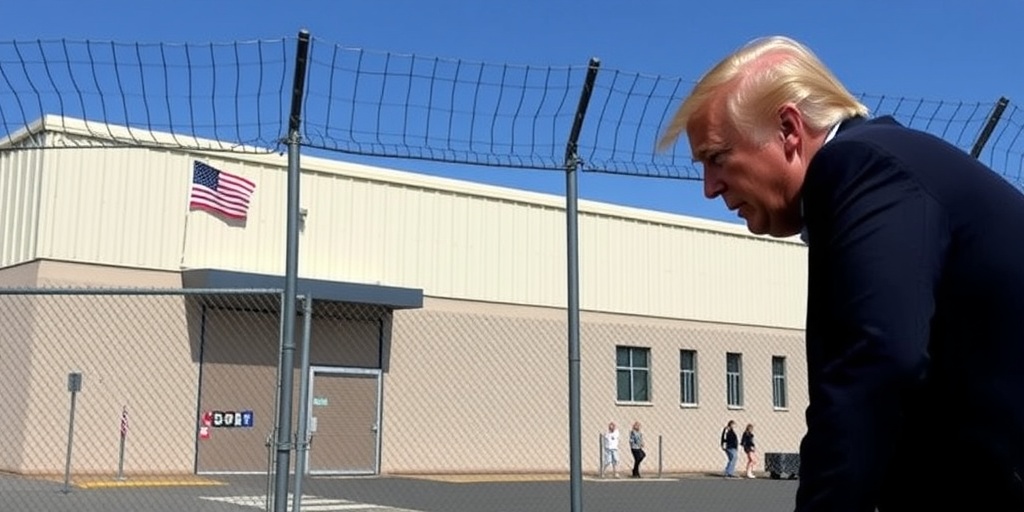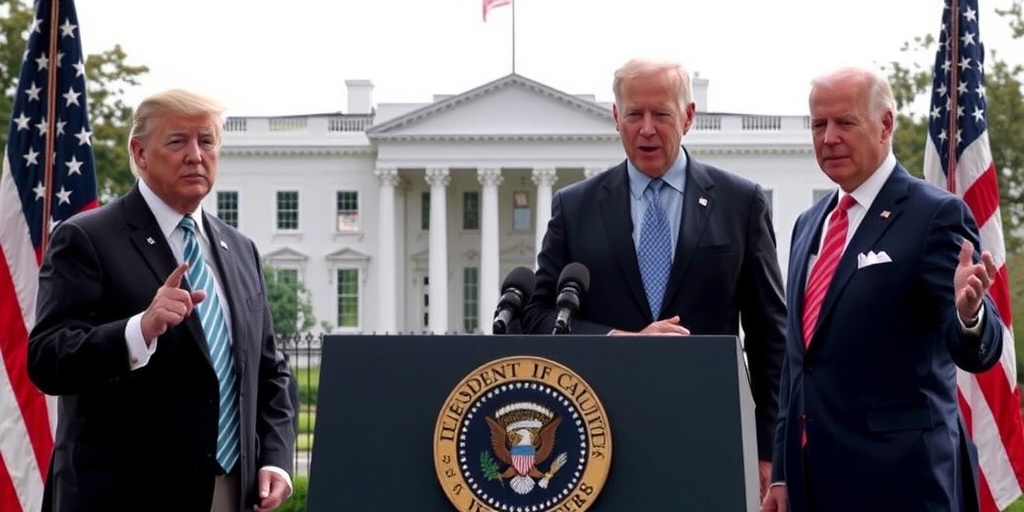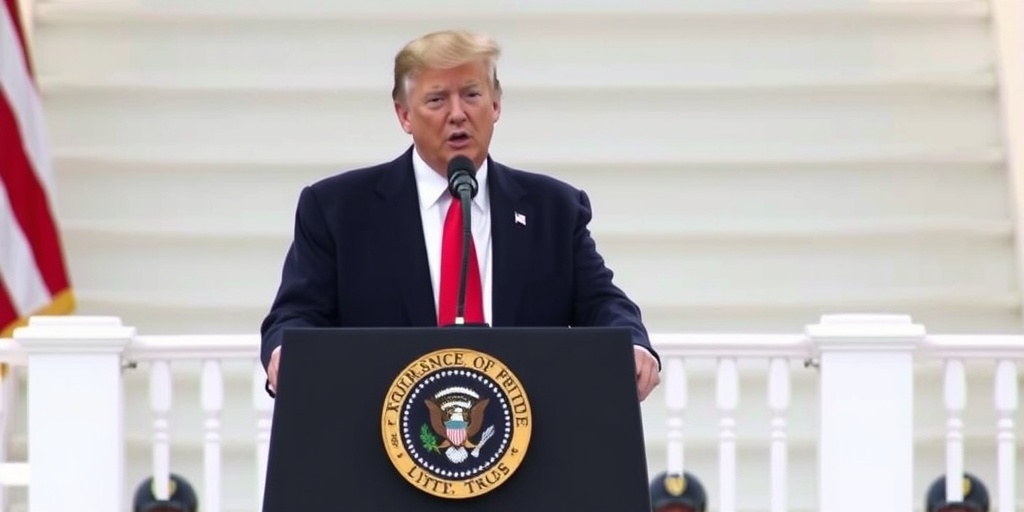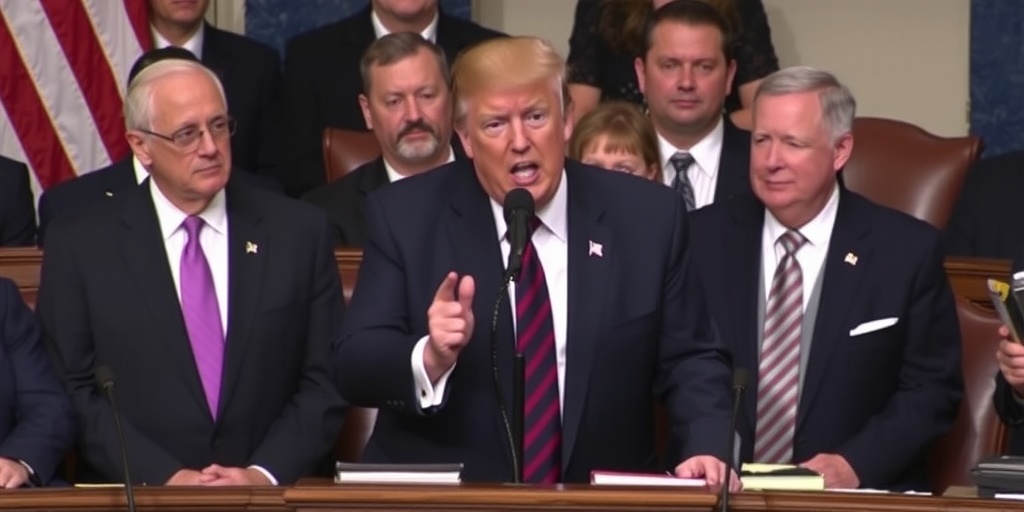Now Reading: Trump Administration Frustrated by Slow Deportation Pace
-
01
Trump Administration Frustrated by Slow Deportation Pace
Trump Administration Frustrated by Slow Deportation Pace

Title: Trump’s Urgent Push for Mass Deportations Faces Challenges Amid Practical Realities
Since taking office, President Trump has been in regular contact with Thomas D. Homan, the architect of his stringent immigration agenda, frequently seeking updates on mass deportations. The President’s inquiries often center around the status of the U.S. border, daily arrest numbers, and the impact of sanctuary cities on his crackdown efforts. Homan’s responses, however, serve as a sobering reality check, highlighting the disconnect between Trump’s ambitious campaign goals and the practical obstacles he faces in executing such a large-scale operation.
Homan has candidly communicated to Trump the urgent need for increased arrests, noting that current figures are not sufficient. Despite the administration’s efforts to mobilize federal resources for what is intended to be the largest deportation initiative in U.S. history, frustrations are rising within the government regarding the slow pace of both arrests and deportations. In a recent interview with The New York Times, Homan admitted, "We need to increase the arrests. They’re not high enough,” acknowledging that financial constraints within Immigration and Customs Enforcement (ICE) could hamper progress. He expressed uncertainty about how many individuals could potentially be deported this year, emphasizing the direct correlation between funding and operational success.
Recent federal data indicates that nearly 23,000 arrests were made in one month under Trump’s administration—a sharp uptick compared to the previous administration. However, daily arrests have seen a decline since the initial surge at the beginning of Trump’s term. Furthermore, deportation numbers have not matched the rate of arrests, which has led to an increased strain on ICE facilities, filled with individuals awaiting processing. While Trump touts a significant decrease in illegal border crossings to historic lows, those involved in the immigration policies, including Homan and Stephen Miller, are acutely aware that time is running out to fulfill the President’s immigration promises.
To bolster the enforcement actions, Trump’s advisers are considering radical measures including the reopening of family detention centers in locations like Dilley and Karnes City, Texas. Homan articulated the need for such facilities, stating, "It’s an option. We got a lot of options on the table." The administration is also looking into utilizing military sites across the United States to address the shortage of available detention beds. Additionally, efforts are underway to request the Internal Revenue Service (IRS) to provide the addresses of undocumented individuals, raising significant privacy concerns.
Despite attempts to ramp up deportations, the operational realities pose significant challenges. Immigration raids do not always yield the expected outcomes. For instance, a recent operation in Aurora, Colorado, aimed at arresting gang members ended up with only about 30 arrests after hundreds of agents were deployed. This scenario reflects broader frustrations, including from F.B.I. agents who report discontent with being diverted from their national security missions to assist with immigration enforcement.
The aftermath of such operations reveals that local law enforcement’s reluctance to cooperate with ICE in sanctuary cities complicates the enforcement process. Immigrant rights activists have successfully informed communities about their rights, advising individuals not to open their doors to ICE agents without warrants. Consequently, ICE is reportedly seeking more judicial warrants to gain access to private residences, further complicating the enforcement mechanisms.
As the Trump administration pushes forward with its enforcement agenda, the diplomatic and logistical aspects of deportations continue to present hurdles. The U.S. has struggled to secure adequate aircraft and deportation agreements with foreign nations, hindering the swift repatriation of individuals.
Striking a balance between ambitious deportation goals and operational realities is a growing concern among Trump’s advisers. Voices within the Department of Homeland Security (DHS) are expressing urgency while also recognizing that substantial help from Congress is essential for the administration’s ambitions to materialize. Even with Republican control over both legislative chambers, there is a lack of consensus on the best path forward.
The pressure on ICE agents is increasingly palpable, with warnings of possible polygraph tests for employees to prevent leaks and maintain operational secrecy. Inner tensions within the agency are evident, with some agents feeling fatigued and strained amid intensified operational demands. A sense of urgency has led to discussions about revoking legal statuses for certain groups of immigrants, piling on additional pressures.
Marcela Hernandez, from the advocacy organization Detention Watch Network, highlighted that the Trump administration’s strategies clash with the community’s values, advocating for a national conversation on the treatment of migrants. As the administration voices its desire for higher detention numbers, a significant group of immigrants is already feeling the impact of escalating rhetoric and proactive measures from federal agencies.
In conclusion, while Trump has vowed to crack down on illegal immigration and ramp up deportations, the complexities of enforcement—ranging from public sentiment and local cooperation to international logistics—pose formidable challenges. Without decisive action from Congress and adjustments to current policies, it remains to be seen whether the ambitious goals of the Trump administration can be realized in a pragmatic and effective manner.
Stay Informed With the Latest & Most Important News
Previous Post
Next Post
-
 01New technology breakthrough has everyone talking right now
01New technology breakthrough has everyone talking right now -
 02Unbelievable life hack everyone needs to try today
02Unbelievable life hack everyone needs to try today -
 03Fascinating discovery found buried deep beneath the ocean
03Fascinating discovery found buried deep beneath the ocean -
 04Man invents genius device that solves everyday problems
04Man invents genius device that solves everyday problems -
 05Shocking discovery that changes what we know forever
05Shocking discovery that changes what we know forever -
 06Internet goes wild over celebrity’s unexpected fashion choice
06Internet goes wild over celebrity’s unexpected fashion choice -
 07Rare animal sighting stuns scientists and wildlife lovers
07Rare animal sighting stuns scientists and wildlife lovers





















